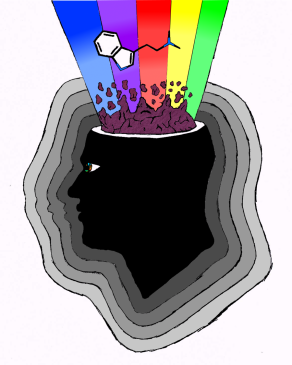Here we are at the end of our ethics course where I find that this writing shenanigan’s has been quite delightful. After throwing my mind out onto a typed up page every week and reading some peoples blogs and opinions about the worlds issues, some of which made me feel as though I was in fact intellectually devolving; I also came across a fair amount of opinions and points that influenced my own thoughts.
At the beginning of the ethics course I can honestly say that I was highly unsure of what was to come and additionally, what to expect from a course taught online. Reasons being, I tend to be more of an outdoors kind of chap and i am not particularly updated on all the new (to my knowledge) blogging type advances in social networking, and furthermore, to all my previous lectures being on a face to face tutorial basis that has never been online. As strange as it seemed, the frustratingly tedious task of getting my blog up and running actually left me with a feeling of achievement knowing that I had created my own blog and made it my own. My thoughts about online courses with social interaction have indeed changed from one that was highly speculative to what is now a more positive outlook on its potential.
Looking back on what I’ve written I find that I can relate and agree with many other bloggers around the same topic. One example being the post of a fellow blogger on the topic of torture, even though his thoughts were different to mine, I felt a sense of relation between his opinion and my own http://itsumr09.wordpress.com/2013/08/07/torture-is-for-the-weak/. My views about the topic did not change but were seen in a different light around what torture actually is https://jarrydpagel.wordpress.com/2013/08/09/an-eye-for-an-eye-and-the-whole-worlds-blind/.
Morality, I believe, is not such an easy human trait to change as it is deeply imbedded into our personality over time. However it was rather interesting to read some moral views of the different people within the ethics course and how their morals affected the opinion and outcome of their blogs https://jarrydpagel.wordpress.com/2013/07/27/empathy-a-bit-of-a-burden/.
As far as euthanasia is concerned, my thoughts are about as impenetrable as badger skin, as they come from a few years of firsthand experience of dealing with death and immense pain and suffering https://jarrydpagel.wordpress.com/2013/08/15/euthanasia-add-some-spice-to-your-iv-line/. I did however find it to be quite a touchy subject where some individuals appeared to be rather “sad panda” about my comparison between animals and humans. If only these individuals had recognized my attempted use of euphemism in order to better explain the topic at hand. Some touch people indeed…
I would like to conclude this last ethics blog by saying that it went beyond what I expected as I am the furthest thing from a writer of any sort, but when I started banging a few letters on my keyboard like an orangutan on acid, it seemed to flow and was actually quite enjoyable.
Everybody Wang Chung tonight
Pagel out







